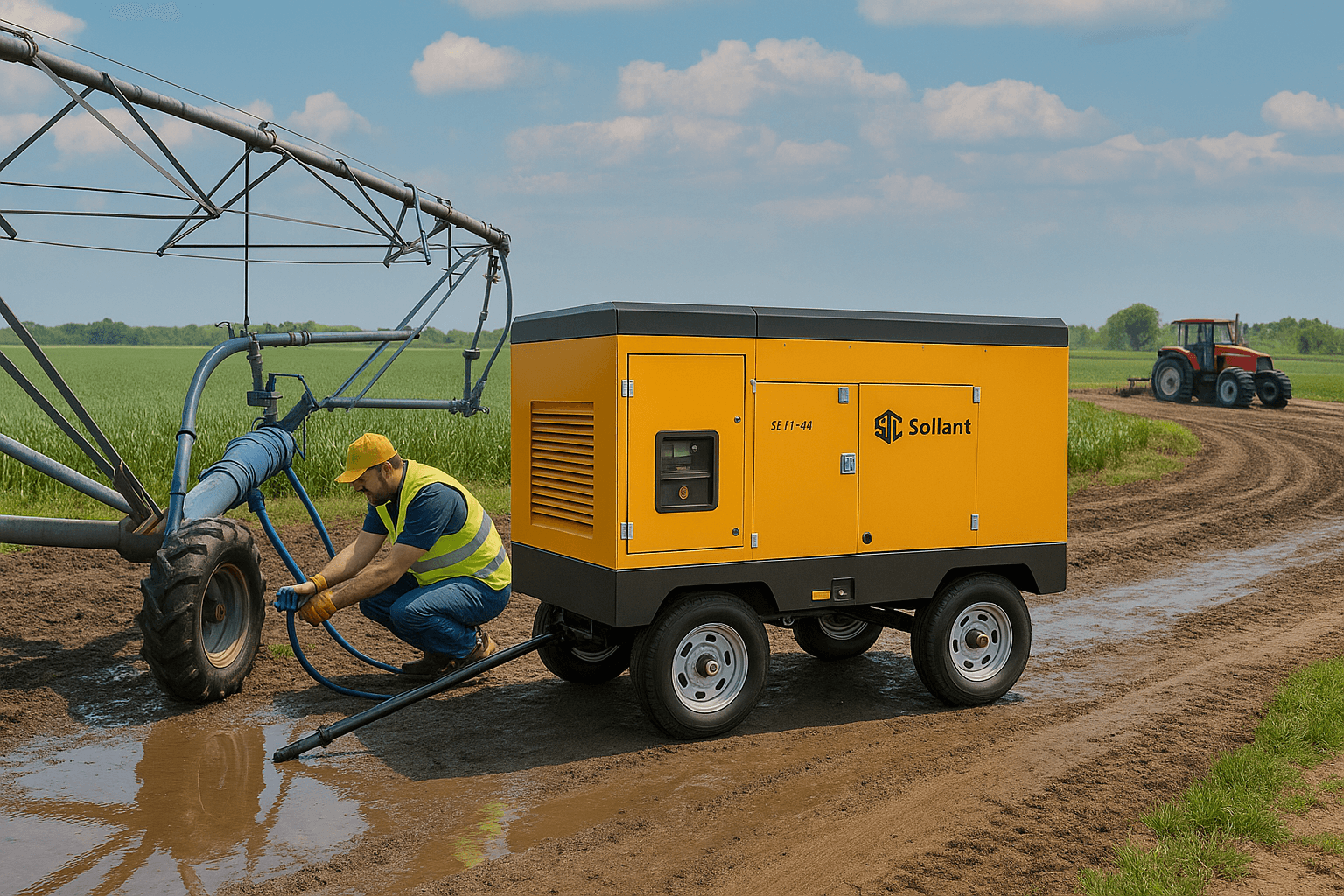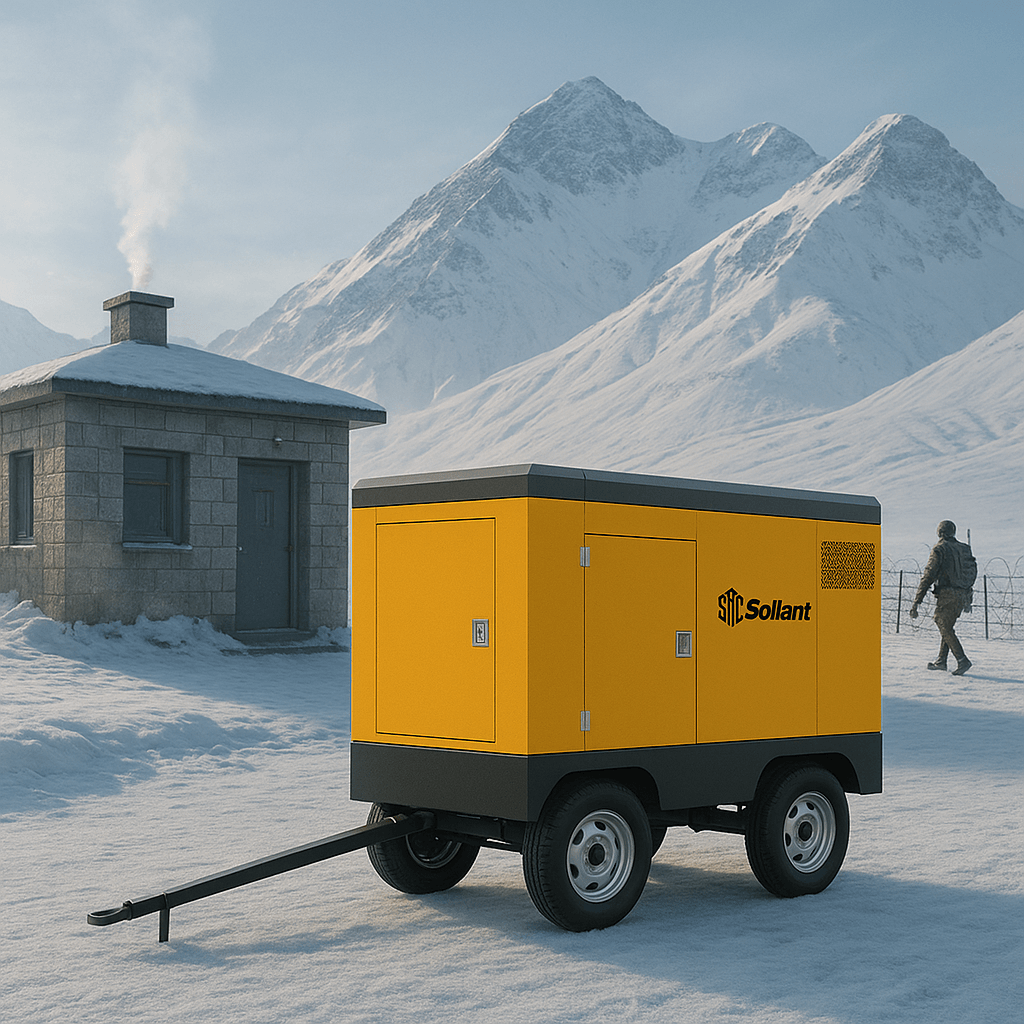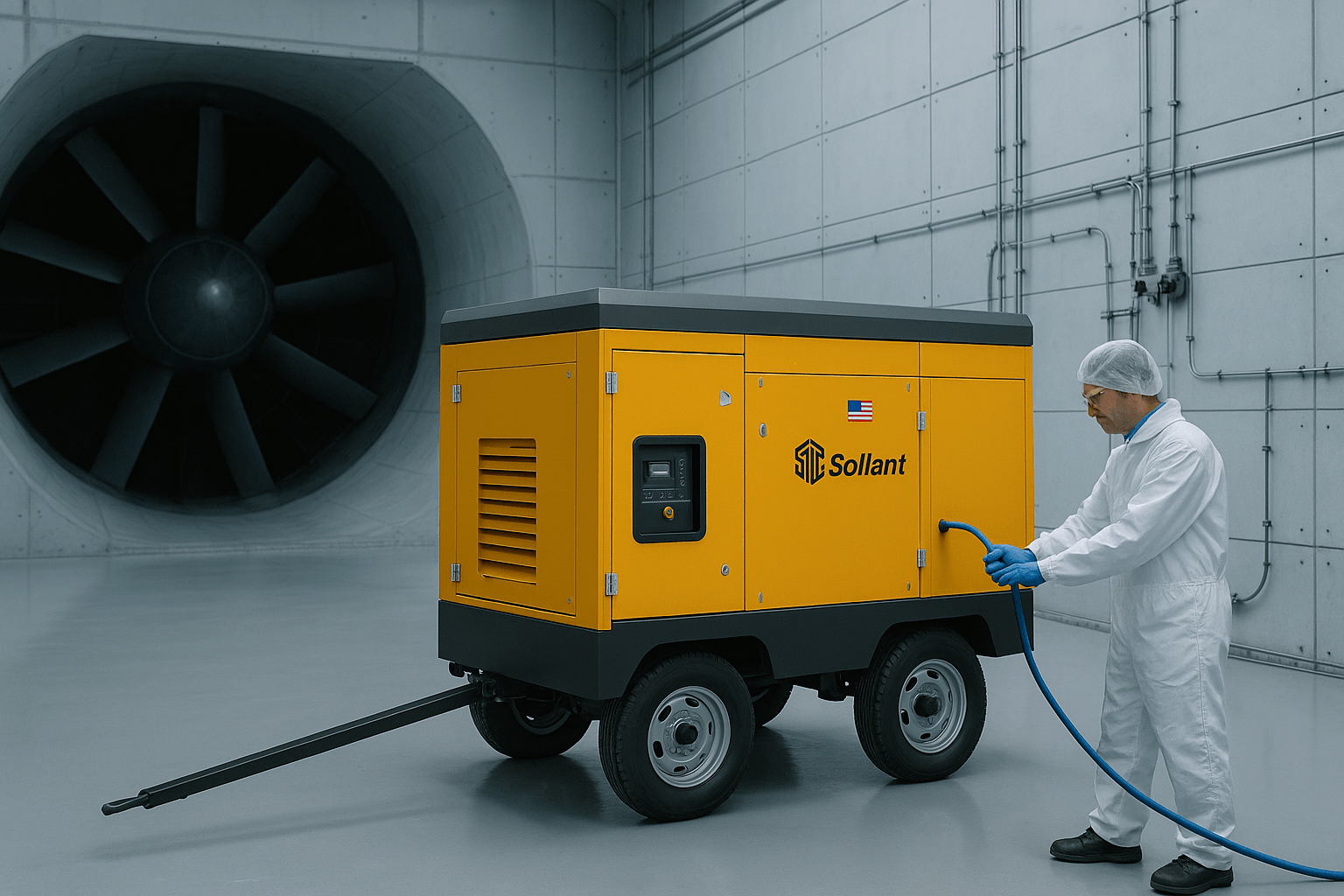Diesel Air Compressor: A Powerful Solution for Industrial and Remote Applications

In industrial, construction, mining, and remote field operations, the diesel air compressor stands out as a reliable and powerful workhorse. Unlike electric compressors that require access to grid power, diesel-powered compressors are self-contained and designed to deliver high performance even in the toughest environments.
This article will walk you through everything you need to know about diesel air compressors—from their core advantages and applications to buying considerations and maintenance tips.
1. What Is a Diesel Air Compressor?
A diesel air compressor is a type of portable or stationary compressor powered by a diesel engine instead of electricity. It compresses atmospheric air into high-pressure air used for a wide range of industrial tasks, including:
-
Powering pneumatic tools
-
Sandblasting and painting
-
Drilling and mining operations
-
Construction and roadwork
-
Remote agricultural and irrigation projects
Key characteristic: Diesel compressors are ideal for off-grid environments where electricity is not readily available, offering unmatched mobility and independence.
2. Key Benefits of a Diesel Air Compressor
Why choose a diesel air compressor over an electric one? Here are the core advantages:
✅ Portability – Most diesel compressors are mounted on trailers or skids, allowing them to be moved easily across job sites.
✅ High Power Output – Diesel engines provide strong torque and can power compressors with 100–1600 CFM (Cubic Feet per Minute) and 100–500 PSI.
✅ Fuel Efficiency – Modern diesel compressors come equipped with energy-saving features such as variable-speed control, automatic shutdown, and fuel-efficient engines.
✅ Durability – Designed for rugged outdoor conditions including extreme temperatures, dust, mud, and moisture.
✅ No Dependence on Grid Power – Perfect for remote drilling, rural construction, and emergency applications.
3. Main Applications of Diesel Air Compressors
a. Construction Sites
Diesel air compressors power jackhammers, breakers, and concrete sprayers. Their mobility and robust design make them ideal for rough terrain.
b. Mining and Quarrying
Used for rock drilling, core sampling, and dust suppression, diesel compressors are critical in areas where electricity is unavailable.
c. Oil & Gas Exploration
Provide consistent airflow for drilling rigs, pipeline pressure testing, and well flushing.
d. Agriculture
Help in powering irrigation systems, crop spraying, and equipment cleaning.
e. Emergency Services
Used by disaster response teams for debris clearing, powering rescue tools, and temporary infrastructure setup.

4. How to Choose the Right Diesel Air Compressor
When investing in a diesel air compressor, here’s what you need to consider:
1. Airflow (CFM) & Pressure (PSI) Requirements
Choose based on the air consumption of your tools or systems. For example:
-
Small tools: 50–100 CFM
-
Drilling: 300–900 CFM
-
Sandblasting: 250–500 CFM at 100–200 PSI
2. Engine Brand & Efficiency
Top-tier diesel engines from Cummins, Kubota, or Perkins offer better longevity, fuel savings, and after-sales support.
3. Portability & Size
For mobile jobs, select a trailer-mounted or skid-mounted model. Stationary units are suitable for fixed industrial setups.
4. Noise Level
Look for compressors with soundproof canopies or noise reduction technology, especially if working in residential areas.
5. Fuel Tank Capacity
Ensure the compressor can operate for 8–12 hours continuously without refueling.
5. Diesel Air Compressor vs. Electric Air Compressor
| Feature | Diesel Air Compressor | Electric Air Compressor |
|---|---|---|
| Power Source | Diesel Fuel | Electricity |
| Portability | High (off-grid capable) | Low (requires power source) |
| Initial Cost | Higher | Lower |
| Operating Cost | Higher fuel cost | Lower if grid power is cheap |
| Maintenance | Moderate to High | Lower |
| Use Environment | Outdoor, remote, harsh | Indoor, stable environment |
🟢 Conclusion: Diesel compressors are perfect for mobile and remote applications, while electric compressors are better for fixed, indoor operations.
6. Maintenance Tips for Diesel Air Compressors
To ensure long-term performance and reduce breakdowns, follow these maintenance practices:
-
🔧 Check engine oil, air filters, and coolant levels daily
-
🌬️ Clean the air intake and replace filters every 250–500 hours
-
⛽ Use high-quality diesel to prevent fuel system issues
-
📅 Perform full engine inspection and load testing every 6–12 months
-
💧 Drain condensate from the air tank and cooler regularly
🛠️ Pro Tip: Follow the manufacturer’s recommended maintenance schedule and keep a maintenance log.

7. Top Diesel Air Compressor Brands to Consider
Investing in a trusted brand ensures reliability, service support, and spare parts availability. Some of the leading manufacturers include:
-
Atlas Copco
-
Kaeser Compressors
-
Doosan Portable Power
-
Sullair
-
Ingersoll Rand
-
Elgi Equipments
Each brand offers a range of models tailored for various industries and capacities.
8. Final Thoughts: Why Diesel Air Compressors Are Essential
If your operation depends on mobility, ruggedness, and high performance, the diesel air compressor is the tool you can rely on. From remote drilling fields to construction sites and emergency zones, diesel compressors deliver consistent, uninterrupted power where it’s needed most.
They may have a higher upfront cost, but their durability, independence from grid power, a



